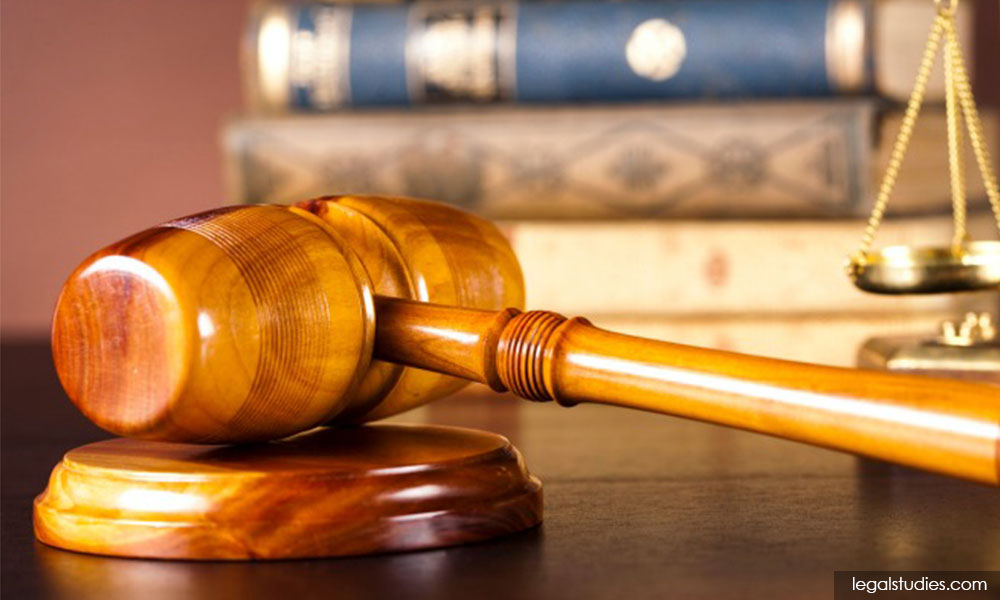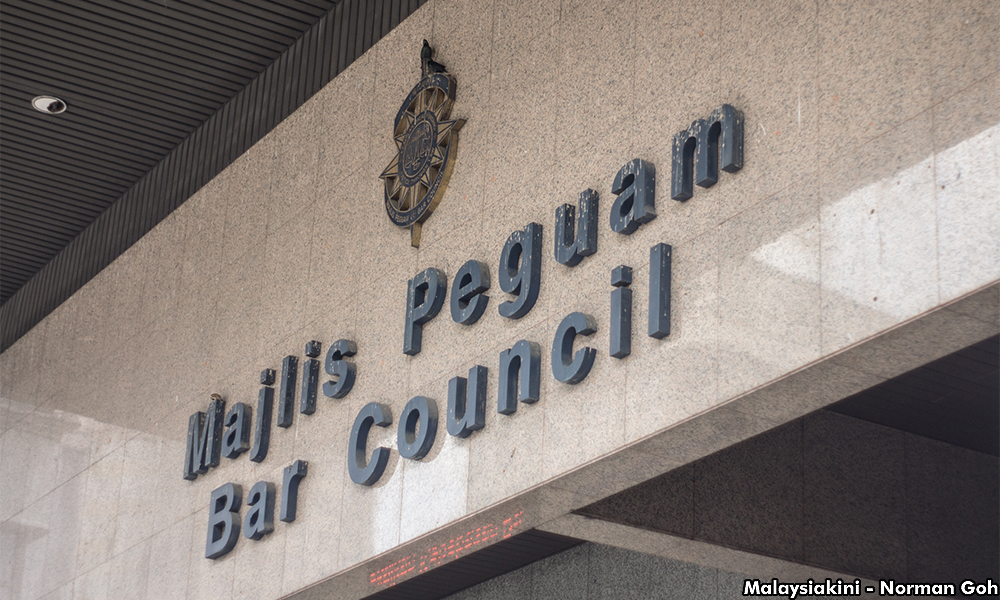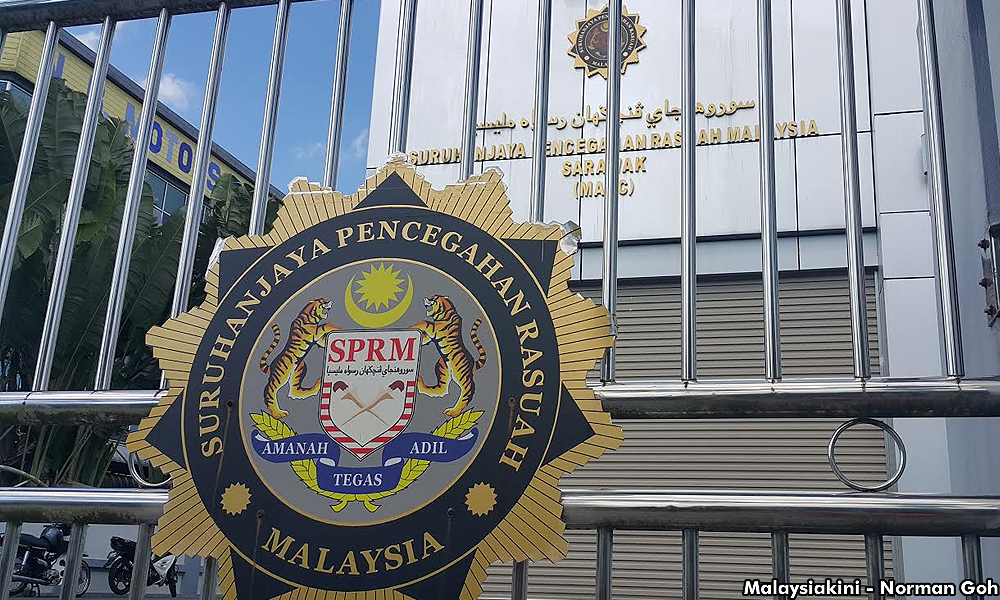
The recent public revelations in the media about the MACC, police and Inland Revenue Board (IRB) investigating 1MDB and its related companies, is timely and to be welcomed.
The new Pakatan Harapan government should not compromise on the fight against corruption and abuse of power provided that the rule of law is observed and adhered to strictly to ensure that there is due process, and substantive fairness in the investigations and in any ensuing criminal prosecution of the suspects.
The investigations premised on such laws as the Anti-Money Laundering, Anti-Terrorism Financing and Proceeds from Unlawful Activities Act 2001, the Malaysian Anti-Corruption Commission Act 2009, the Income Tax Act 1967 and the Penal Code should be wide-ranging and embrace all allegations of abuse or misuse of power and corruption, not just by politicians and civil servants but it should also include others in public service, such as judges and lawyers.
As a lawyer in practice for the last 25 years, it was disheartening to witness the degradation of the legal profession by unscrupulous and unethical legal practitioners who were solely motivated by greed and self-interest, willingly encouraging and condoning, if not aiding and abetting, in perverting the rule of law and undermining the administration of justice in this country by colluding with corrupt judges and government officials under the previous administration.
Probe lawyers who 'abetted' previous gov't
It was an open secret that many lawyers who had provided services to the former government and ruling party had become instant millionaires with considerable assets at home and abroad, and not all of them could be considered to be exceptional professionally, to justify the accumulation of such wealth over a relatively short period of time.
There is no denying that some lawyers were not only rewarded with lucrative government contracts and appointments to the board of directors of government-linked companies (GLCs) but they were also allowed to charge and get paid exorbitant fees for services rendered to these GLCs, public corporations and statutory bodies that were over and above what would be considered to be fair and reasonable in the legal profession.
Of course in some cases, commissions and other incentives were paid to senior management in these entities to ensure that questions were not asked about such payments to a select group of lawyers and legal firms who were given a virtual monopoly over the legal work of these companies, corporations and statutory bodies.
There have been cases where some of these lawyers appointed to the boards of GLCs did not even turn up for the board meetings but were allowed to sign the attendance sheet, and collect their attendance allowance that could amount to as low as RM3,000 per meeting to as high as RM30,000 per meeting. Instead of being present at these board meetings, some of these lawyers would be in court attending to their cases, or at meetings with politicians and other clients, or playing golf.
Some of these well-connected lawyers were privately boasting about their ability to fix cases in the courts and their access to senior judges on the bench usually in the superior courts. These lawyers would offer their services to fix the outcome of a trial or appeal before certain judges, even to the extent of assuring prospective clients which panel of judges would get appointed to hear a particular case in the Court of Appeal or the Federal Court.
In return, these lawyers would demand sums as high as millions of ringgit, purportedly, to bribe the judges involved to ensure a favourable outcome to whichever party that was willing to pay these huge amounts.
Other lawyers in this elite group would even claim that they had direct access to senior ministers and civil servants and that they allegedly could suppress police and MACC investigations, get evidenced misplaced or tampered with, and even influence the deputy public prosecutors to drop criminal charges against suspects, all for the right price.
Some of these lawyers allegedly even allowed their influential clients to launder money through their clients’ accounts onshore or through private offshore bank accounts, notably in Singapore, Indonesia, Hong Kong, Australia, New Zealand, the United Arab Emirates and the United Kingdom for a considerable fee.

The Bar Council does not have the power to conduct criminal investigations into the conduct of lawyers and in cases of disciplinary offences the standard of proof is beyond a reasonable doubt. Therefore, this is not an effective remedy to eradicate the problem.
The judiciary is well protected under the constitution and is immunised from private legal actions. If a judge misbehaves or misconducts himself, then he can be removed from office under Article 125 of the constitution. But the process is cumbersome and time-consuming.
In cases of a breach of the Judges’ Code of Ethics, the only recourse is to complain to the Chief Justice and if there is a prima facie case, then the matter is referred to the Judges’ Ethics Committee for investigation under the Judges’ Ethics Committee Act 2010.
But the entire process is internal and the complainant is not heard. In most cases, the outcome would not be satisfactory and may rebound on the complainant.
It is time that the MACC, police and the IRB investigate these lawyers and judges by carrying out forensic auditing of their bank accounts and by tracing the movement of funds and their acquisition of assets which is often done through proxies or nominees.
Funds involving foreign bank accounts are allegedly moved in the form of cash or through the use of licensed money changers or moneylenders to avoid detection and scrutiny by regulatory authorities.
In relation to Malaysian bank accounts, the same methods are used and/or incentives are purportedly paid to senior bank managers to structure the transfer of funds on a weekly or monthly basis in pre-determined amounts so as not to trigger the threshold amount for notification to the central bank.
Usually, these funds are transferred to family members who have permanent residence status in foreign countries or those who are studying or working abroad and/or into offshore accounts in various international tax havens through means of shelf-companies.
Make judges disclose assets
Impartial investigations should be carried out to determine the alleged close relationship between certain senior lawyers, law firms and sitting judges. Judges must be compelled to make an annual disclosure of their assets including those assets being held in the names of their spouses and children to the MACC.

It was unfortunate that under the previous regime, some judges used to be unimpressed by legal arguments in court. Instead, they were more attracted to the presence of senior lawyers with impressive titles who were perceived to be close to the former leadership, ruling party and the government.
This attitude would permeate all levels of the judicial system to the point that certain lawyers and law firms got treated differently by the judicial officers and court staff. At the end of the day, it was not always about justice being done or being seen to be done in a fair and impartial manner, but rather a perception that some lawyers and by extension their clients got a better hearing from the bench because of their connections to the then establishment.
Regrettably, some judges were more concerned about recognition and promotion rather than doing justice. For them, the government and by extension, public authorities, the police, religious bodies, corporations and banks must always be right.
Other judges who were intellectually capable compromised on their own integrity and intelligence by providing justification to suit the narrative of the former government and their leaders especially in politically charged cases and those involving interpretation of the Federal Constitution and fundamental liberties.
They provided the state with a veneer of constitutionalism and respectability. These two types of judges were always highly regarded by the former government and promoted to the senior judiciary because they were perceived to be reliable and compliant.
The judges who had uncompromising principles of integrity and independence and sound intellect were often sidelined when it came to appointments and promotions by the former regime because they could not be influenced and controlled.
Set up independent committee, RCI
It is time that an independent Judicial Integrity, Ethics and Oversight Committee be set up to enable litigants, lawyers and the general public to lodge complaints against serving judges and judicial officers and the committee must be allowed to investigate, and to make recommendations to the Judicial and Legal Services Commission, the Chief Justice and the prime minister for appropriate action to be taken in cases of misfeasance, misconduct and misbehaviour by judges and judicial officers.
Alternatively, the new government should consider a Royal Commission of Inquiry into the Judicial and Legal system to propose far-reaching, fundamental and comprehensive reforms to the judiciary and legal profession to ensure and enhance their independence, integrity, competency, efficiency and delivery.
I am not suggesting a witch hunt or advocating guilt by association in relation to these lawyers and judges. But unexplained wealth must be accounted for especially when there is a strong suspicion of corruption, abuse of power and misappropriation of public funds.
The rule of law and the administration of justice demands that all the stakeholders must be persons of the highest integrity, scrupulously clean and be above any form of suspicion. Otherwise, the abuses and corruption within the system will never be fully eradicated in our era of Malaysia Baru.
GERARD LOURDESAMY is a lawyer who has been in practice for 25 years, and is a former PKR member. - Mkini



No comments:
Post a Comment
Note: Only a member of this blog may post a comment.